Active Pharmaceutical Ingredients
Formulated Products
Packaging Services
Contract Manufacturing
Contract Research
Product Development
Oncology
Cardiology
Neurology
Infectious Diseases
Pharmaceutical Companies
Biotechnology Companies
Generic Drug Manufacturers
North America
Europe
South America
Asia Pacific
Middle East and Africa
North America Outlook (USD Billion, 2019-2035)
North America Pharmaceutical Contract Manufacturing Market by Manufacturing Type
Active Pharmaceutical Ingredients
Formulated Products
Packaging Services
North America Pharmaceutical Contract Manufacturing Market by Service Type
Contract Manufacturing
Contract Research
Product Development
North America Pharmaceutical Contract Manufacturing Market by Therapeutic Area Type
Oncology
Cardiology
Neurology
Infectious Diseases
North America Pharmaceutical Contract Manufacturing Market by End User Type
Pharmaceutical Companies
Biotechnology Companies
Generic Drug Manufacturers
North America Pharmaceutical Contract Manufacturing Market by Regional Type
US
Canada
US Outlook (USD Billion, 2019-2035)
US Pharmaceutical Contract Manufacturing Market by Manufacturing Type
Active Pharmaceutical Ingredients
Formulated Products
Packaging Services
US Pharmaceutical Contract Manufacturing Market by Service Type
Contract Manufacturing
Contract Research
Product Development
US Pharmaceutical Contract Manufacturing Market by Therapeutic Area Type
Oncology
Cardiology
Neurology
Infectious Diseases
US Pharmaceutical Contract Manufacturing Market by End User Type
Pharmaceutical Companies
Biotechnology Companies
Generic Drug Manufacturers
CANADA Outlook (USD Billion, 2019-2035)
CANADA Pharmaceutical Contract Manufacturing Market by Manufacturing Type
Active Pharmaceutical Ingredients
Formulated Products
Packaging Services
CANADA Pharmaceutical Contract Manufacturing Market by Service Type
Contract Manufacturing
Contract Research
Product Development
CANADA Pharmaceutical Contract Manufacturing Market by Therapeutic Area Type
Oncology
Cardiology
Neurology
Infectious Diseases
CANADA Pharmaceutical Contract Manufacturing Market by End User Type
Pharmaceutical Companies
Biotechnology Companies
Generic Drug Manufacturers
Europe Outlook (USD Billion, 2019-2035)
Europe Pharmaceutical Contract Manufacturing Market by Manufacturing Type
Active Pharmaceutical Ingredients
Formulated Products
Packaging Services
Europe Pharmaceutical Contract Manufacturing Market by Service Type
Contract Manufacturing
Contract Research
Product Development
Europe Pharmaceutical Contract Manufacturing Market by Therapeutic Area Type
Oncology
Cardiology
Neurology
Infectious Diseases
Europe Pharmaceutical Contract Manufacturing Market by End User Type
Pharmaceutical Companies
Biotechnology Companies
Generic Drug Manufacturers
Europe Pharmaceutical Contract Manufacturing Market by Regional Type
Germany
UK
France
Russia
Italy
Spain
Rest of Europe
GERMANY Outlook (USD Billion, 2019-2035)
GERMANY Pharmaceutical Contract Manufacturing Market by Manufacturing Type
Active Pharmaceutical Ingredients
Formulated Products
Packaging Services
GERMANY Pharmaceutical Contract Manufacturing Market by Service Type
Contract Manufacturing
Contract Research
Product Development
GERMANY Pharmaceutical Contract Manufacturing Market by Therapeutic Area Type
Oncology
Cardiology
Neurology
Infectious Diseases
GERMANY Pharmaceutical Contract Manufacturing Market by End User Type
Pharmaceutical Companies
Biotechnology Companies
Generic Drug Manufacturers
UK Outlook (USD Billion, 2019-2035)
UK Pharmaceutical Contract Manufacturing Market by Manufacturing Type
Active Pharmaceutical Ingredients
Formulated Products
Packaging Services
UK Pharmaceutical Contract Manufacturing Market by Service Type
Contract Manufacturing
Contract Research
Product Development
UK Pharmaceutical Contract Manufacturing Market by Therapeutic Area Type
Oncology
Cardiology
Neurology
Infectious Diseases
UK Pharmaceutical Contract Manufacturing Market by End User Type
Pharmaceutical Companies
Biotechnology Companies
Generic Drug Manufacturers
FRANCE Outlook (USD Billion, 2019-2035)
FRANCE Pharmaceutical Contract Manufacturing Market by Manufacturing Type
Active Pharmaceutical Ingredients
Formulated Products
Packaging Services
FRANCE Pharmaceutical Contract Manufacturing Market by Service Type
Contract Manufacturing
Contract Research
Product Development
FRANCE Pharmaceutical Contract Manufacturing Market by Therapeutic Area Type
Oncology
Cardiology
Neurology
Infectious Diseases
FRANCE Pharmaceutical Contract Manufacturing Market by End User Type
Pharmaceutical Companies
Biotechnology Companies
Generic Drug Manufacturers
RUSSIA Outlook (USD Billion, 2019-2035)
RUSSIA Pharmaceutical Contract Manufacturing Market by Manufacturing Type
Active Pharmaceutical Ingredients
Formulated Products
Packaging Services
RUSSIA Pharmaceutical Contract Manufacturing Market by Service Type
Contract Manufacturing
Contract Research
Product Development
RUSSIA Pharmaceutical Contract Manufacturing Market by Therapeutic Area Type
Oncology
Cardiology
Neurology
Infectious Diseases
RUSSIA Pharmaceutical Contract Manufacturing Market by End User Type
Pharmaceutical Companies
Biotechnology Companies
Generic Drug Manufacturers
ITALY Outlook (USD Billion, 2019-2035)
ITALY Pharmaceutical Contract Manufacturing Market by Manufacturing Type
Active Pharmaceutical Ingredients
Formulated Products
Packaging Services
ITALY Pharmaceutical Contract Manufacturing Market by Service Type
Contract Manufacturing
Contract Research
Product Development
ITALY Pharmaceutical Contract Manufacturing Market by Therapeutic Area Type
Oncology
Cardiology
Neurology
Infectious Diseases
ITALY Pharmaceutical Contract Manufacturing Market by End User Type
Pharmaceutical Companies
Biotechnology Companies
Generic Drug Manufacturers
SPAIN Outlook (USD Billion, 2019-2035)
SPAIN Pharmaceutical Contract Manufacturing Market by Manufacturing Type
Active Pharmaceutical Ingredients
Formulated Products
Packaging Services
SPAIN Pharmaceutical Contract Manufacturing Market by Service Type
Contract Manufacturing
Contract Research
Product Development
SPAIN Pharmaceutical Contract Manufacturing Market by Therapeutic Area Type
Oncology
Cardiology
Neurology
Infectious Diseases
SPAIN Pharmaceutical Contract Manufacturing Market by End User Type
Pharmaceutical Companies
Biotechnology Companies
Generic Drug Manufacturers
REST OF EUROPE Outlook (USD Billion, 2019-2035)
REST OF EUROPE Pharmaceutical Contract Manufacturing Market by Manufacturing Type
Active Pharmaceutical Ingredients
Formulated Products
Packaging Services
REST OF EUROPE Pharmaceutical Contract Manufacturing Market by Service Type
Contract Manufacturing
Contract Research
Product Development
REST OF EUROPE Pharmaceutical Contract Manufacturing Market by Therapeutic Area Type
Oncology
Cardiology
Neurology
Infectious Diseases
REST OF EUROPE Pharmaceutical Contract Manufacturing Market by End User Type
Pharmaceutical Companies
Biotechnology Companies
Generic Drug Manufacturers
APAC Outlook (USD Billion, 2019-2035)
APAC Pharmaceutical Contract Manufacturing Market by Manufacturing Type
Active Pharmaceutical Ingredients
Formulated Products
Packaging Services
APAC Pharmaceutical Contract Manufacturing Market by Service Type
Contract Manufacturing
Contract Research
Product Development
APAC Pharmaceutical Contract Manufacturing Market by Therapeutic Area Type
Oncology
Cardiology
Neurology
Infectious Diseases
APAC Pharmaceutical Contract Manufacturing Market by End User Type
Pharmaceutical Companies
Biotechnology Companies
Generic Drug Manufacturers
APAC Pharmaceutical Contract Manufacturing Market by Regional Type
China
India
Japan
South Korea
Malaysia
Thailand
Indonesia
Rest of APAC
CHINA Outlook (USD Billion, 2019-2035)
CHINA Pharmaceutical Contract Manufacturing Market by Manufacturing Type
Active Pharmaceutical Ingredients
Formulated Products
Packaging Services
CHINA Pharmaceutical Contract Manufacturing Market by Service Type
Contract Manufacturing
Contract Research
Product Development
CHINA Pharmaceutical Contract Manufacturing Market by Therapeutic Area Type
Oncology
Cardiology
Neurology
Infectious Diseases
CHINA Pharmaceutical Contract Manufacturing Market by End User Type
Pharmaceutical Companies
Biotechnology Companies
Generic Drug Manufacturers
INDIA Outlook (USD Billion, 2019-2035)
INDIA Pharmaceutical Contract Manufacturing Market by Manufacturing Type
Active Pharmaceutical Ingredients
Formulated Products
Packaging Services
INDIA Pharmaceutical Contract Manufacturing Market by Service Type
Contract Manufacturing
Contract Research
Product Development
INDIA Pharmaceutical Contract Manufacturing Market by Therapeutic Area Type
Oncology
Cardiology
Neurology
Infectious Diseases
INDIA Pharmaceutical Contract Manufacturing Market by End User Type
Pharmaceutical Companies
Biotechnology Companies
Generic Drug Manufacturers
JAPAN Outlook (USD Billion, 2019-2035)
JAPAN Pharmaceutical Contract Manufacturing Market by Manufacturing Type
Active Pharmaceutical Ingredients
Formulated Products
Packaging Services
JAPAN Pharmaceutical Contract Manufacturing Market by Service Type
Contract Manufacturing
Contract Research
Product Development
JAPAN Pharmaceutical Contract Manufacturing Market by Therapeutic Area Type
Oncology
Cardiology
Neurology
Infectious Diseases
JAPAN Pharmaceutical Contract Manufacturing Market by End User Type
Pharmaceutical Companies
Biotechnology Companies
Generic Drug Manufacturers
SOUTH KOREA Outlook (USD Billion, 2019-2035)
SOUTH KOREA Pharmaceutical Contract Manufacturing Market by Manufacturing Type
Active Pharmaceutical Ingredients
Formulated Products
Packaging Services
SOUTH KOREA Pharmaceutical Contract Manufacturing Market by Service Type
Contract Manufacturing
Contract Research
Product Development
SOUTH KOREA Pharmaceutical Contract Manufacturing Market by Therapeutic Area Type
Oncology
Cardiology
Neurology
Infectious Diseases
SOUTH KOREA Pharmaceutical Contract Manufacturing Market by End User Type
Pharmaceutical Companies
Biotechnology Companies
Generic Drug Manufacturers
MALAYSIA Outlook (USD Billion, 2019-2035)
MALAYSIA Pharmaceutical Contract Manufacturing Market by Manufacturing Type
Active Pharmaceutical Ingredients
Formulated Products
Packaging Services
MALAYSIA Pharmaceutical Contract Manufacturing Market by Service Type
Contract Manufacturing
Contract Research
Product Development
MALAYSIA Pharmaceutical Contract Manufacturing Market by Therapeutic Area Type
Oncology
Cardiology
Neurology
Infectious Diseases
MALAYSIA Pharmaceutical Contract Manufacturing Market by End User Type
Pharmaceutical Companies
Biotechnology Companies
Generic Drug Manufacturers
THAILAND Outlook (USD Billion, 2019-2035)
THAILAND Pharmaceutical Contract Manufacturing Market by Manufacturing Type
Active Pharmaceutical Ingredients
Formulated Products
Packaging Services
THAILAND Pharmaceutical Contract Manufacturing Market by Service Type
Contract Manufacturing
Contract Research
Product Development
THAILAND Pharmaceutical Contract Manufacturing Market by Therapeutic Area Type
Oncology
Cardiology
Neurology
Infectious Diseases
THAILAND Pharmaceutical Contract Manufacturing Market by End User Type
Pharmaceutical Companies
Biotechnology Companies
Generic Drug Manufacturers
INDONESIA Outlook (USD Billion, 2019-2035)
INDONESIA Pharmaceutical Contract Manufacturing Market by Manufacturing Type
Active Pharmaceutical Ingredients
Formulated Products
Packaging Services
INDONESIA Pharmaceutical Contract Manufacturing Market by Service Type
Contract Manufacturing
Contract Research
Product Development
INDONESIA Pharmaceutical Contract Manufacturing Market by Therapeutic Area Type
Oncology
Cardiology
Neurology
Infectious Diseases
INDONESIA Pharmaceutical Contract Manufacturing Market by End User Type
Pharmaceutical Companies
Biotechnology Companies
Generic Drug Manufacturers
REST OF APAC Outlook (USD Billion, 2019-2035)
REST OF APAC Pharmaceutical Contract Manufacturing Market by Manufacturing Type
Active Pharmaceutical Ingredients
Formulated Products
Packaging Services
REST OF APAC Pharmaceutical Contract Manufacturing Market by Service Type
Contract Manufacturing
Contract Research
Product Development
REST OF APAC Pharmaceutical Contract Manufacturing Market by Therapeutic Area Type
Oncology
Cardiology
Neurology
Infectious Diseases
REST OF APAC Pharmaceutical Contract Manufacturing Market by End User Type
Pharmaceutical Companies
Biotechnology Companies
Generic Drug Manufacturers
South America Outlook (USD Billion, 2019-2035)
South America Pharmaceutical Contract Manufacturing Market by Manufacturing Type
Active Pharmaceutical Ingredients
Formulated Products
Packaging Services
South America Pharmaceutical Contract Manufacturing Market by Service Type
Contract Manufacturing
Contract Research
Product Development
South America Pharmaceutical Contract Manufacturing Market by Therapeutic Area Type
Oncology
Cardiology
Neurology
Infectious Diseases
South America Pharmaceutical Contract Manufacturing Market by End User Type
Pharmaceutical Companies
Biotechnology Companies
Generic Drug Manufacturers
South America Pharmaceutical Contract Manufacturing Market by Regional Type
Brazil
Mexico
Argentina
Rest of South America
BRAZIL Outlook (USD Billion, 2019-2035)
BRAZIL Pharmaceutical Contract Manufacturing Market by Manufacturing Type
Active Pharmaceutical Ingredients
Formulated Products
Packaging Services
BRAZIL Pharmaceutical Contract Manufacturing Market by Service Type
Contract Manufacturing
Contract Research
Product Development
BRAZIL Pharmaceutical Contract Manufacturing Market by Therapeutic Area Type
Oncology
Cardiology
Neurology
Infectious Diseases
BRAZIL Pharmaceutical Contract Manufacturing Market by End User Type
Pharmaceutical Companies
Biotechnology Companies
Generic Drug Manufacturers
MEXICO Outlook (USD Billion, 2019-2035)
MEXICO Pharmaceutical Contract Manufacturing Market by Manufacturing Type
Active Pharmaceutical Ingredients
Formulated Products
Packaging Services
MEXICO Pharmaceutical Contract Manufacturing Market by Service Type
Contract Manufacturing
Contract Research
Product Development
MEXICO Pharmaceutical Contract Manufacturing Market by Therapeutic Area Type
Oncology
Cardiology
Neurology
Infectious Diseases
MEXICO Pharmaceutical Contract Manufacturing Market by End User Type
Pharmaceutical Companies
Biotechnology Companies
Generic Drug Manufacturers
ARGENTINA Outlook (USD Billion, 2019-2035)
ARGENTINA Pharmaceutical Contract Manufacturing Market by Manufacturing Type
Active Pharmaceutical Ingredients
Formulated Products
Packaging Services
ARGENTINA Pharmaceutical Contract Manufacturing Market by Service Type
Contract Manufacturing
Contract Research
Product Development
ARGENTINA Pharmaceutical Contract Manufacturing Market by Therapeutic Area Type
Oncology
Cardiology
Neurology
Infectious Diseases
ARGENTINA Pharmaceutical Contract Manufacturing Market by End User Type
Pharmaceutical Companies
Biotechnology Companies
Generic Drug Manufacturers
REST OF SOUTH AMERICA Outlook (USD Billion, 2019-2035)
REST OF SOUTH AMERICA Pharmaceutical Contract Manufacturing Market by Manufacturing Type
Active Pharmaceutical Ingredients
Formulated Products
Packaging Services
REST OF SOUTH AMERICA Pharmaceutical Contract Manufacturing Market by Service Type
Contract Manufacturing
Contract Research
Product Development
REST OF SOUTH AMERICA Pharmaceutical Contract Manufacturing Market by Therapeutic Area Type
Oncology
Cardiology
Neurology
Infectious Diseases
REST OF SOUTH AMERICA Pharmaceutical Contract Manufacturing Market by End User Type
Pharmaceutical Companies
Biotechnology Companies
Generic Drug Manufacturers
MEA Outlook (USD Billion, 2019-2035)
MEA Pharmaceutical Contract Manufacturing Market by Manufacturing Type
Active Pharmaceutical Ingredients
Formulated Products
Packaging Services
MEA Pharmaceutical Contract Manufacturing Market by Service Type
Contract Manufacturing
Contract Research
Product Development
MEA Pharmaceutical Contract Manufacturing Market by Therapeutic Area Type
Oncology
Cardiology
Neurology
Infectious Diseases
MEA Pharmaceutical Contract Manufacturing Market by End User Type
Pharmaceutical Companies
Biotechnology Companies
Generic Drug Manufacturers
MEA Pharmaceutical Contract Manufacturing Market by Regional Type
GCC Countries
South Africa
Rest of MEA
GCC COUNTRIES Outlook (USD Billion, 2019-2035)
GCC COUNTRIES Pharmaceutical Contract Manufacturing Market by Manufacturing Type
Active Pharmaceutical Ingredients
Formulated Products
Packaging Services
GCC COUNTRIES Pharmaceutical Contract Manufacturing Market by Service Type
Contract Manufacturing
Contract Research
Product Development
GCC COUNTRIES Pharmaceutical Contract Manufacturing Market by Therapeutic Area Type
Oncology
Cardiology
Neurology
Infectious Diseases
GCC COUNTRIES Pharmaceutical Contract Manufacturing Market by End User Type
Pharmaceutical Companies
Biotechnology Companies
Generic Drug Manufacturers
SOUTH AFRICA Outlook (USD Billion, 2019-2035)
SOUTH AFRICA Pharmaceutical Contract Manufacturing Market by Manufacturing Type
Active Pharmaceutical Ingredients
Formulated Products
Packaging Services
SOUTH AFRICA Pharmaceutical Contract Manufacturing Market by Service Type
Contract Manufacturing
Contract Research
Product Development
SOUTH AFRICA Pharmaceutical Contract Manufacturing Market by Therapeutic Area Type
Oncology
Cardiology
Neurology
Infectious Diseases
SOUTH AFRICA Pharmaceutical Contract Manufacturing Market by End User Type
Pharmaceutical Companies
Biotechnology Companies
Generic Drug Manufacturers
REST OF MEA Outlook (USD Billion, 2019-2035)
REST OF MEA Pharmaceutical Contract Manufacturing Market by Manufacturing Type
Active Pharmaceutical Ingredients
Formulated Products
Packaging Services
REST OF MEA Pharmaceutical Contract Manufacturing Market by Service Type
Contract Manufacturing
Contract Research
Product Development
REST OF MEA Pharmaceutical Contract Manufacturing Market by Therapeutic Area Type
Oncology
Cardiology
Neurology
Infectious Diseases
REST OF MEA Pharmaceutical Contract Manufacturing Market by End User Type
Pharmaceutical Companies
Biotechnology Companies
Generic Drug Manufacturers


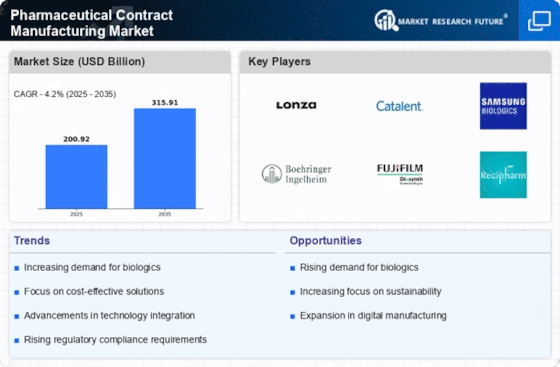

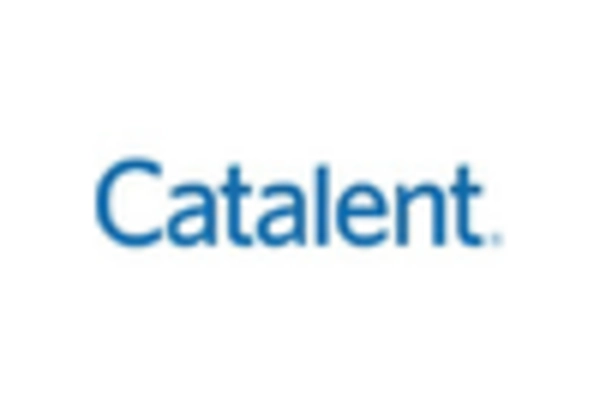
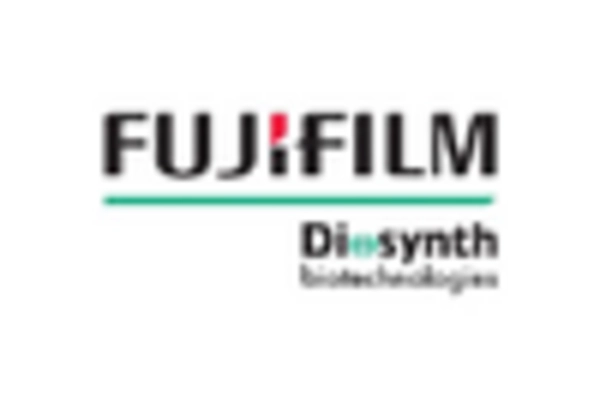
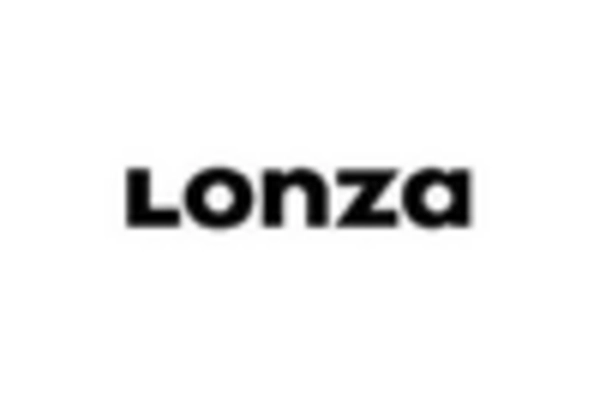
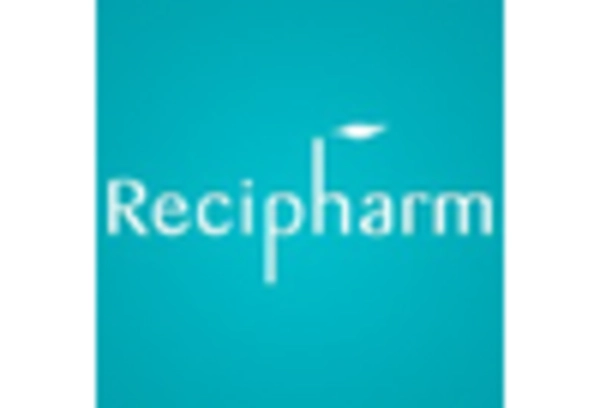
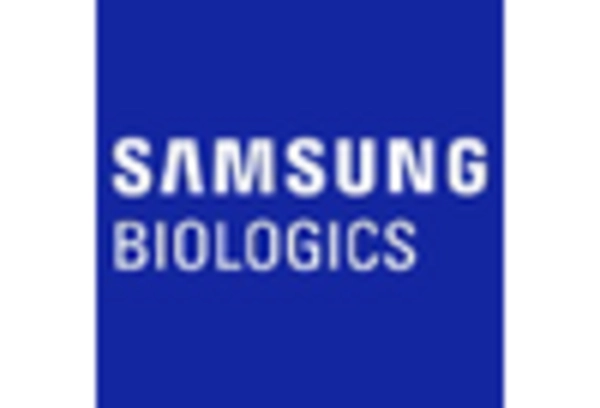









Leave a Comment